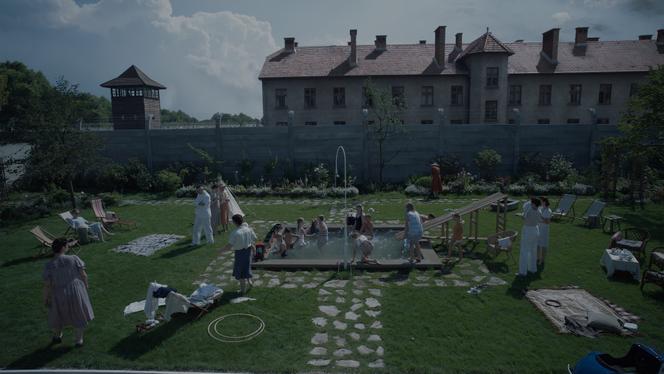


LE MONDE'S OPINION - A MASTERPIECE
First, three minutes of black screen, ripped apart by composer Mica Levi's distorted notes. Then, suddenly, blinding clarity and birdsong. The perfect image of a family picnic on the grass by the river. Right from the outset, these two radically antagonistic sequences set out the formal, narrative and ethical approach chosen by Jonathan Glazer for his fourth feature film, The Zone of Interest. This chilling, masterful film adds another chef-d'oeuvre to the British director's rare and fascinating filmography. With this film, inspired by rather than adapted from Martin Amis' novel of the same name, Glazer came close to winning the Palme d'Or at the May 2023 Cannes Film Festival.
In the end, the festival's highest award went to Justine Triet for Anatomy of a Fall. The Zone of Interest received the Grand Prix du Jury, a distinction it shares with the breathtaking Son of Saul (2015) by Hungarian director Laszlo Nemes, who won the award eight years ago. Nemes' film, renowned for its immersive, hand-held camera approach that closely follows a member of the Auschwitz Sonderkommando, contrasts sharply with Glazer's approach. In contrast, his film stays just a stone's throw from the camp, in the villa and garden of the Höss family, on the edge of Auschwitz-Birkenau, in what the Nazis called the "zone of interest."
The two approaches brilliantly put to the test the two positions that have long fueled thought and debate around an eternal question: Can art, and particularly fiction, allow itself even the slightest attempt to represent the Shoah? A question, as we know, decided with authority by Claude Lanzmann, with whom Glazer aligns himself. Unlike Nemes, Glazer chooses to keep his distance from Auschwitz, to show nothing of it in favor of its absolute opposite – the insignificant banality of everyday life – which, in fact, has the effect of rendering the horror omnipresent.
What we see here is not just any ordinary family. Rudolf Höss (Christian Friedel), the man in the house, is the historic commandant of Auschwitz-Birkenau, an outstanding engineer whose talents were used to develop new techniques capable of optimizing the camp's extermination capabilities.
At his side, his wife Hedwig (Sandra Hüller) – designated "Queen of Auschwitz" by her husband – ran the house and its staff like a master. The glory of having designed the property's vast garden (vegetable garden, flowerbeds, swimming pool and greenhouse) goes to her credit. It offers the couple a relaxing space where it's good to breathe; an ideal, perfectly secured playground for their four children.
You have 55% of this article left to read. The rest is for subscribers only.
